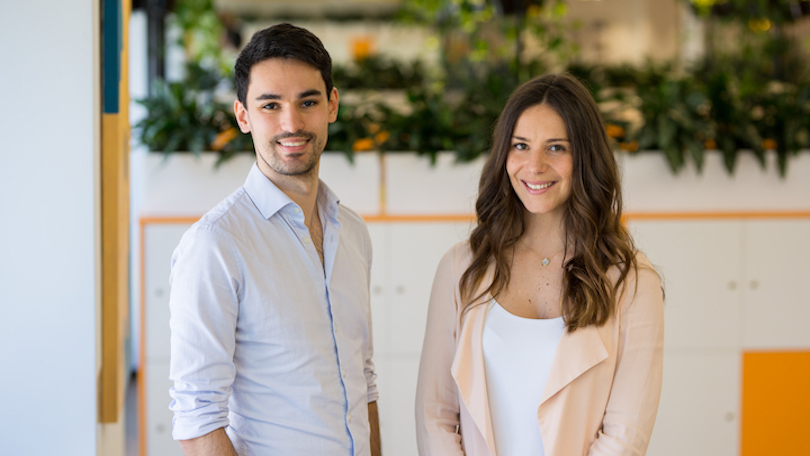Vitamin subscription service Vitable raises $5.5m venture funding

Australian vitamin retailing disruptor Vitable has secured $5.5 million in a series A funding round, drawing interest from a raft of recognised investors including Germany’s Rocket Internet, parent of Global Fashion Group and Hello Fresh, among others.
Founded by Larah Loutati and Ilyas Anane (pictured above) just two years ago, Vitable operates a subscription-based service in Australia, New Zealand and Singapore, creating personalised vitamin and health supplement recommendations for customers who complete an online questionnaire. The monthly orders can be adjusted as the customer’s health needs change and the mobile app provides notification reminders to help build a daily routine and track progress.
The company says the fresh funds will allow expansion into the wider Asia-Pacific region as it aims to take a share of a global dietary supplement market projected by Grand View Research to be worth US$230 billion by 2027.
“Ultimately Vitable will grow beyond its core vitamin offer towards a broader vision of a personalised and holistic health and wellness experience, an industry McKinsey recently valued at US$1.5 trillion,” said Loutati, announcing the closing of the funding round.
Led by Brenteca Investments, other investors include former MD of LinkedIn ANZ and serial tech investor, Clifford Rosenberg, and venture capital firm Artesian.
Besides boosting geographic expansion, the money will be allocated to product and app development and the recruitment of key personnel.
“Personalisation and honest guidance through selection and purchase are the future of vitamins and mineral supplements,” said Loutati.
“This mix of personalisation and convenience increases engagement, education, and ultimate user wellbeing.”
Dave Fenlon, Group CEO BWX Brands and Oliver Samwer, CEO, Rocket Internet, are both members of Vitable’s board of advisors.
“Vitable is growing rapidly and disrupting a traditional business model that is inefficient and expensive,” said Alexandra Clunies-Ross of Artesian. “The world is increasingly digital, and consumers no longer want to buy supplements from traditional suppliers. Instead, they are looking for more personalised services that can tailor high quality products to their individual lifestyle and have them delivered to their home for convenience.”
Comment Manually
You must be logged in to post a comment.

No comments